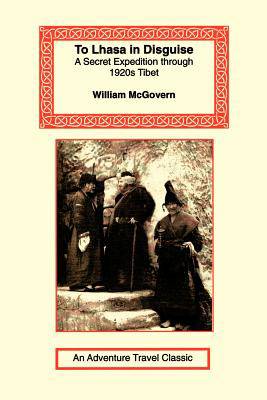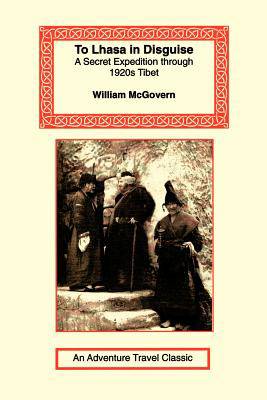
- Retrait gratuit dans votre magasin Club
- 7.000.000 titres dans notre catalogue
- Payer en toute sécurité
- Toujours un magasin près de chez vous
- Retrait gratuit dans votre magasin Club
- 7.000.0000 titres dans notre catalogue
- Payer en toute sécurité
- Toujours un magasin près de chez vous
30,95 €
+ 61 points
Description
There were two Asian lands forbidden to Westerners in the early twentieth century. The region of the sacred Muslim cities of Mecca and Medina was well known for being off-limits. The second was Tibet, located high up on the roof of the world. This windswept, snow-covered Himalayan kingdom was the home of the Dalai Lama, the living reincarnation of the Buddha. Hidden behind stony mountains and a phalanx of xenophobic warrior monks, the high Lama resided in his isolated realm, serenely cut off from the outside world. Yet erect an obstacle and human beings will endeavor to get around it. Secretive Tibet was no different. A number of foreigners tried to get to Lhasa, the off-limits capital of the kingdom. They were all eventually discovered and turned back. Then in 1912 an unlikely candidate for geographic romance appeared. His name was William McGovern. He was an Oxford trained scholar, and more surprisingly, an American, for no one from that faraway country had ever attempted to beard the Tibetan lion in his den. McGovern was no ordinary Yankee traveler though. An excellent student of Tibetan culture, art, and language, he also brought a hitherto undisclosed talent in the search for Lhasa's secrets. McGovern was a scholar of Buddhist thought and prayer. It was because of this religious sympathy that Tibetan authorities grudgingly allowed the American, and his tiny caravan, to enter their country. He was ordered to go to the first border town, and stop. However as "To Lhasa in Disguise" explains, McGovern had no intention of stopping before he reached the forbidden city. What follows is one of the most intriguing tales of travel ever penned. McGovern made his way over dangerous mountain passes, avoided prowling Tibetan patrols, and finally reached his goal, only to be recognized and arrested. Still a vivid tale after all these years, if it is adventure and hair-raising travel you are seeking, then go no further. "To Lhasa in Disguise" delivers all that and more.
Spécifications
Parties prenantes
- Auteur(s) :
- Editeur:
Contenu
- Nombre de pages :
- 484
- Langue:
- Anglais
- Collection :
Caractéristiques
- EAN:
- 9781590480984
- Date de parution :
- 01-12-01
- Format:
- Livre broché
- Format numérique:
- Trade paperback (VS)
- Dimensions :
- 153 mm x 230 mm
- Poids :
- 771 g

Les avis
Nous publions uniquement les avis qui respectent les conditions requises. Consultez nos conditions pour les avis.






